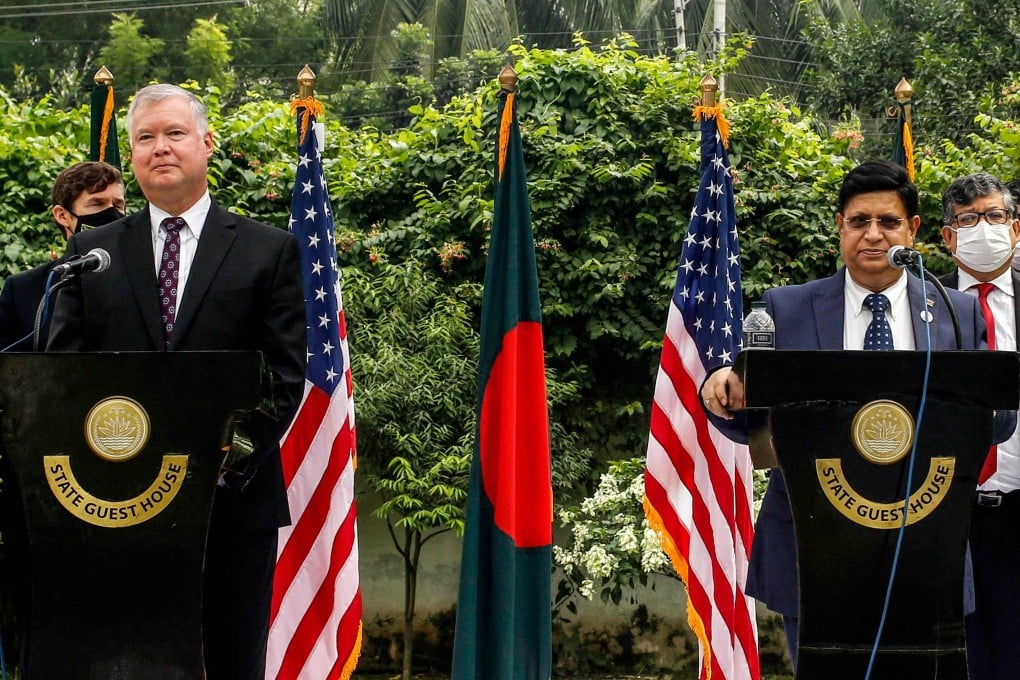Advertisement
Analysis | As US hones its Indo-Pacific strategy, South Asian nations come into focus
- High-level visit to Bangladesh seen as larger trend in US policy to engage smaller countries in region
- Washington’s strategy in the region is focused on strong India ties and countering China, but other nations see room for manoeuvring
Reading Time:4 minutes
Why you can trust SCMP
0

US Deputy Secretary of State Stephen Biegun’s visit to Dhaka this past week was seen as part of Washington’s attempt to raise its visibility in South Asia at a time when China has increased engagement with countries in the region through its ambitious Belt and Road Initiative , which promises billions of dollars of investments in infrastructure projects, as well as enhanced trade and defence ties.
Biegun’s thee-day stay in Dhaka followed US Defence Secretary Mark Esper’s phone conversation with Bangladesh Prime Minister Sheikh Hasina in September. It represented, according to Bangladeshi newspaper The Daily Star, the “new enthusiasm” of the US for Bangladesh because of the country’s sustained growth, political stability and geographical location.
“The US sees Bangladesh as a key partner in the Indo-Pacific region,” Biegun was quoted as saying in media reports, adding that the country would be “the centrepiece of our work” to advance a free and open Indo-Pacific region.
High-level visits from Washington to Dhaka in the past have typically taken place just before US presidential elections, according to Shahab Enam Khan, professor of international relations at Dhaka’s Jahangirnagar University. Then-US Secretary of State John Kerry came in August 2016, his predecessor Hillary Clinton visited in May 2012, and now Biegun, barely a fortnight before the November election.
The context of Biegun’s visit – aside from the current US administration trying to win the support of the 200,000-plus Bangladeshi-Americans, who are traditionally Democratic Party supporters – had more to do with finding partners for Washington’s Indo-Pacific strategy.
Advertisement